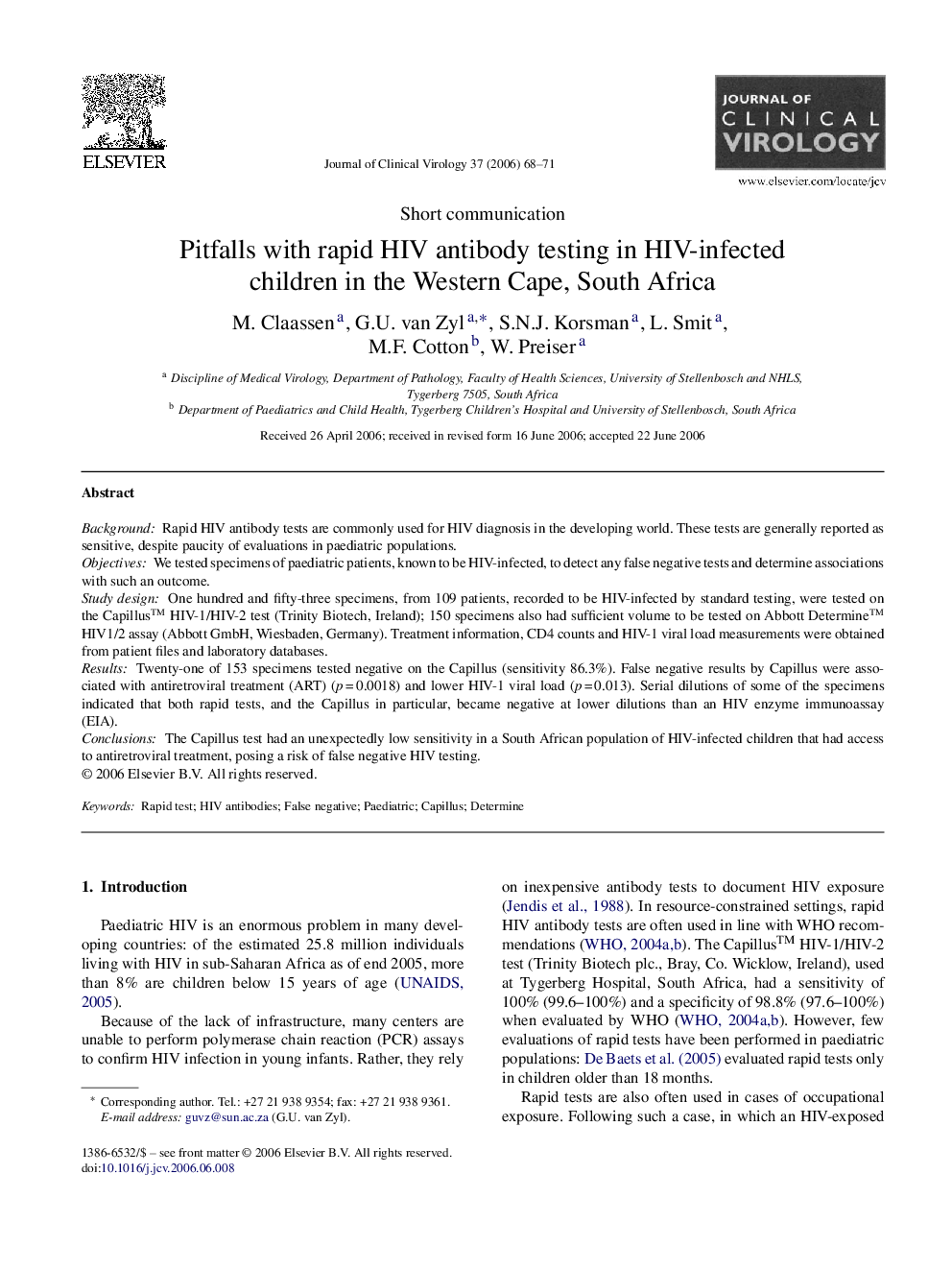| Article ID | Journal | Published Year | Pages | File Type |
|---|---|---|---|---|
| 3370317 | Journal of Clinical Virology | 2006 | 4 Pages |
BackgroundRapid HIV antibody tests are commonly used for HIV diagnosis in the developing world. These tests are generally reported as sensitive, despite paucity of evaluations in paediatric populations.ObjectivesWe tested specimens of paediatric patients, known to be HIV-infected, to detect any false negative tests and determine associations with such an outcome.Study designOne hundred and fifty-three specimens, from 109 patients, recorded to be HIV-infected by standard testing, were tested on the Capillus™ HIV-1/HIV-2 test (Trinity Biotech, Ireland); 150 specimens also had sufficient volume to be tested on Abbott Determine™ HIV1/2 assay (Abbott GmbH, Wiesbaden, Germany). Treatment information, CD4 counts and HIV-1 viral load measurements were obtained from patient files and laboratory databases.ResultsTwenty-one of 153 specimens tested negative on the Capillus (sensitivity 86.3%). False negative results by Capillus were associated with antiretroviral treatment (ART) (p = 0.0018) and lower HIV-1 viral load (p = 0.013). Serial dilutions of some of the specimens indicated that both rapid tests, and the Capillus in particular, became negative at lower dilutions than an HIV enzyme immunoassay (EIA).ConclusionsThe Capillus test had an unexpectedly low sensitivity in a South African population of HIV-infected children that had access to antiretroviral treatment, posing a risk of false negative HIV testing.
